The Prime Minister Attends the Nagasaki Peace Ceremony, and Other Activities
Tuesday, August 9, 2011
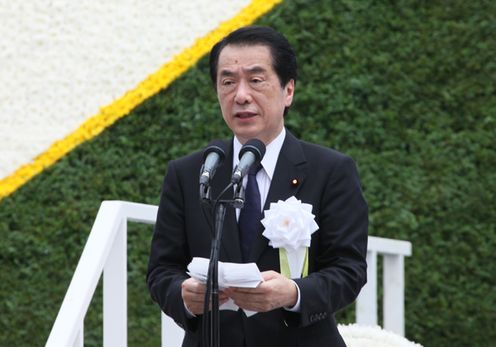
Photograph of the Prime Minister delivering an address at the Nagasaki Peace Ceremony 1
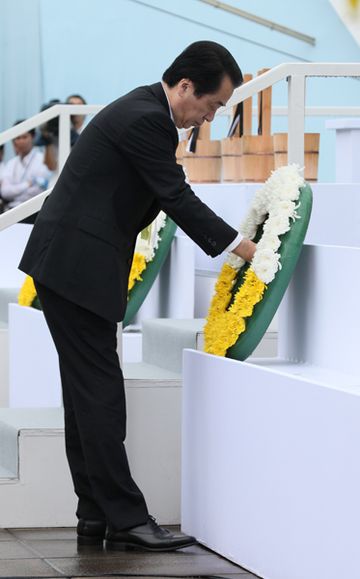
Photograph of the Prime Minister offering flowers at the Nagasaki Peace Ceremony
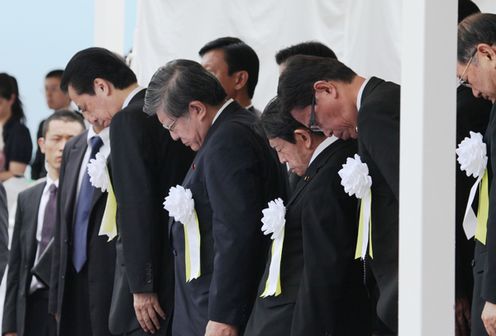
Photograph of the Prime Minister offering a silent prayer at the Nagasaki Peace Ceremony
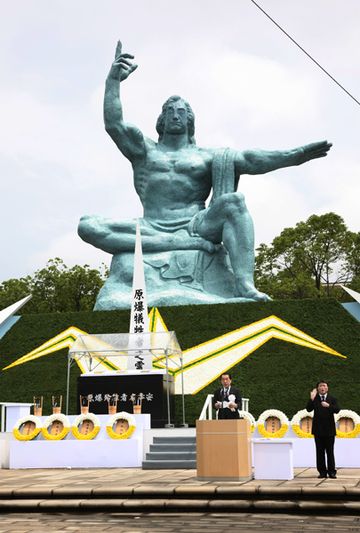
Photograph of the Prime Minister delivering an address at the Nagasaki Peace Ceremony 2
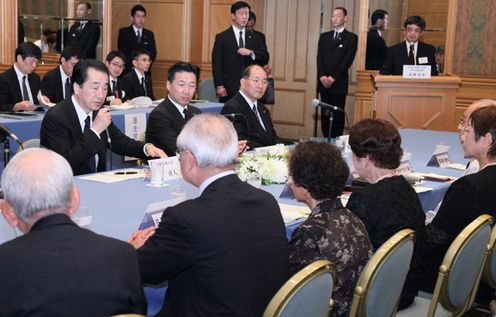
Photograph of the Prime Minister delivering an address at the meeting with the Special Communicators for a World without Nuclear Weapons
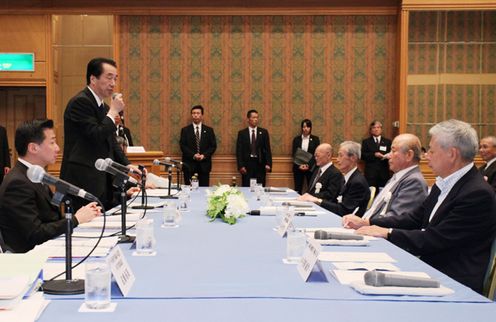
Photograph of the Prime Minister attending the Meeting to Listen to Requests by Representatives of Atomic Bomb Victims
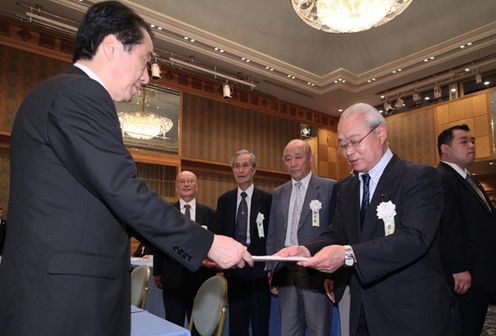
Photograph of the Prime Minister receiving a letter of request from atomic bomb victims' organizations
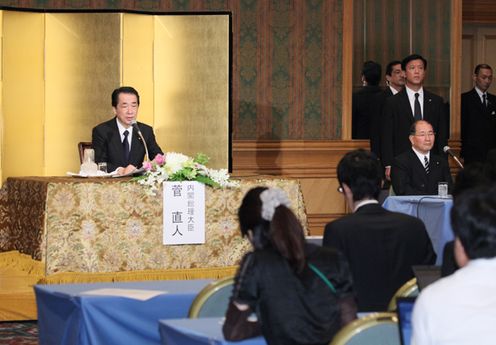
Photograph of the Prime Minister attending a press conference
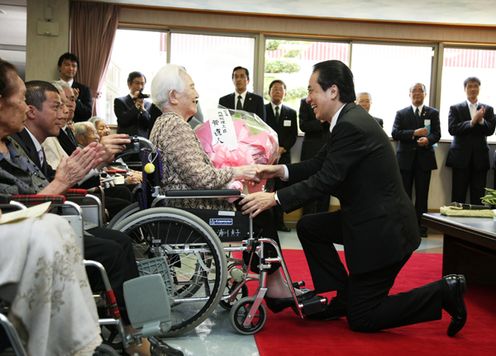
Photograph of the Prime Minister visiting a nursing home for atomic bomb survivors in Nagasaki, the Hill of Grace Nagasaki A-Bomb Home 1
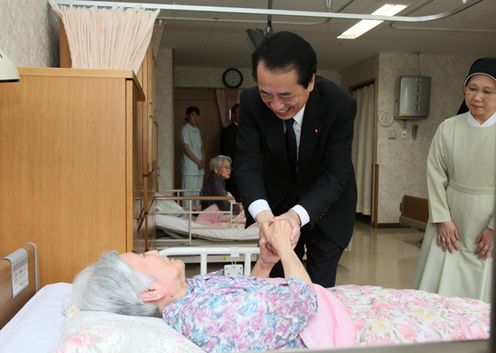
Photograph of the Prime Minister visiting a nursing home for atomic bomb survivors in Nagasaki, the Hill of Grace Nagasaki A-Bomb Home 2
Prime Minister Naoto Kan attended the annual Nagasaki Peace Ceremony held in the Peace Park in Nagasaki City.
Approximately 6,000 people including atomic bomb victims and bereaved family members, as well as representatives of 44 nations -- the largest number of nations ever -- attended the ceremony marking the 66th anniversary of the atomic bombing, praying for the repose of the souls of the war dead. This was also the first time that representatives of the United States attended the ceremony. From Fukushima Prefecture Mr. Takanori Seto, Mayor of Fukushima City, and junior-high students of Iwaki City were also invited to the ceremony.
Mr. Tomihisa Taue, Mayor of Nagasaki City, and the representatives of the bereaved family members and the atomic bomb victims placed at the site the list of the names of the atomic bomb victims who had been confirmed dead in the past year. The representatives of the bereaved family members, the atomic bomb victims, and the local elementary, junior high, and high school students offered water. Mayor Taue, Prime Minister Kan, and other guests then offered wreathes.
The Bell of Nagasaki was rung at 11:02 a.m., when the atomic bomb was dropped, and the participants prayed in silence for a minute. Following Mayor Taue's Peace Declaration, the recital of the Promise for Peace by Mr. Hisao Matsuo, the representative of the atomic bomb victims, and the choral singing by students from Shiroyama Elementary School in Nagasaki City, Prime Minister Kan delivered an address.
The Prime Minister said, "Sixty-six years ago today, an atomic bomb was dropped on Nagasaki, taking the precious lives of an estimated 70,000 people in mere seconds. Even the survivors have been left with indescribable pain and irreparable scars. People must never forget, nor repeat, the horrors caused by nuclear weapons here in Nagasaki. I pledge that Japan, the only country to have experienced nuclear devastation in war, will observe its Constitution and firmly maintain the Three Non-Nuclear Principles for the sake of the ultimate elimination of nuclear weapons and the realization of eternal world peace."
The Prime Minister also said, "It is Japan's historical responsibility to the world to tell future generations about the horrors of nuclear weapons. I sincerely thank all of the Special Communicators for their devoted cooperation. The passion and interest of the people of Nagasaki are indispensable in boosting momentum for nuclear disarmament. Japan will work together with everyone in spreading activities related to disarmament and non-proliferation around the world.
The Great East Japan Earthquake of March 11, 2011 severely damaged Tokyo Electric Power Corporation's Fukushima Nuclear Power Station. The ensuing large-scale, long-term nuclear incident caused the release of radioactive materials, thus provoking tremendous concern in Japan and around the world. It is our responsibility to take the new lessons, realizations, and what we have learned from this incident and communicate those to the people of the world and future generations."
After the ceremony, the Prime Minister met with 11 Special Communicators for a World without Nuclear Weapons, who reported their activities to the Prime Minister, at a hotel in Nagasaki City. The Prime Minister then attended the Meeting to Listen to Requests by Representatives of Atomic Bomb Victims and heard requests from representatives from five groups of atomic bomb victims and others, followed by a press conference.
Afterwards, the Prime Minister visited a nursing home for atomic bomb survivors in Nagasaki, the Hill of Grace Nagasaki A-Bomb Home.









